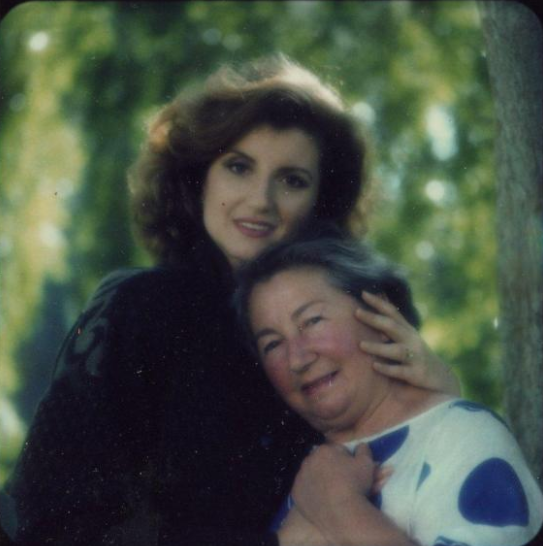My mother died three and a half months to the day after my father’s death. She had a massive stroke in my home, which has always been her home, too. In the two weeks since her death, I’ve realized that she and I had an unspoken deal: hers would be the rhythm of a timeless world, a child’s rhythm; mine was the rhythm of the modern world. While I had the sense every time I looked at my watch that it was later than I thought, she lived in a world where there were no impersonal encounters, where a trip to the farmer’s market happily filled half a day, where there was always enough time for wonder at how lovely the rosemary looked next to the lavender. In fact, going through the market with her was like walking through the Louvre with an art connoisseur — except that you could touch and smell these still lifes.
She left no will and no prized possessions. Which is not surprising, considering her habit of giving such things away. For instance, there was the time we tried to give her a second watch — and within 48 hours she had given it to someone else. So what she’s left us with is the treasure house of her spirit. It’s as though certain gifts can be bequeathed only at one’s death, that while she was alive she so embodied the qualities of nurturing, simplicity, unconditional loving and a connection with the sacred that it felt as if those dimensions of life were taken care of for all those blessed to be in her orbit. Why learn how to cook when you live with the Iron Chef?
And now that she’s gone, I know that however difficult, inconvenient, even unnatural it may be for a while, there is only one way to honor her — by living differently, living more like she lived.
The last time my mother was upset with me was when she saw me talking with my children and opening my mail at the same time. She despised multi-tasking. She believed it was a way to miss life, to miss the gifts that come only when you give 100 percent of yourself to a task, a relationship, a moment.
The night before she died, we were having dinner at the home of some good friends. Near the end of the evening, our host asked everyone to talk about an important experience from their lives. When my mother’s turn came, she talked about a moment that not only defined her but how she believed life should be lived. It was the moment when she had been captured by the Germans in the Greek mountains where she had gone to join the resistance to the Nazi occupation of Greece. “Put your guns down,” she told them in flawless German. Miraculously, the soldiers complied — perhaps dumbfounded by the 23-year-old’s audacity.
Because she was fluent in German, she quickly became the translator between the prisoners and their captors. When the soldiers asked her if there were any Jews among them, she unhesitatingly replied, “No.” They were, in fact, hiding two Jewish teenage girls. When she had told this story to my children once, I remember one of them asking “So, Yaya — you lied?” “To save two lives? You bet I did!” she replied, giving them an important lesson in ethics and in courage.
That story — which ended up being the last one she told in her life — really captured her: her indomitable spirit, her defiance of authority, her trust in life, her fearlessness (she liked to quote Pericles, saying that “courage is the knowledge of what is not to be feared”).
There was a magnificence in the way she approached everything in her life. Especially her role as mother. She brought me up to believe that there was nothing I should be afraid to try while at the same time making it clear that she would love me not one iota less if I failed.
She said once that she operated like the government — she first decided what it was that her children needed, and then she set out to find the money. My mother was one of the original deficit financers. She made ends meet by borrowing or by selling her possessions — from a carpet brought by her parents from Russia to her last pair of gold earrings.
As I scan our lives together, I realize that there isn’t a single corner of my life that isn’t filled with her. She is, without question, the foundation of my existence. So much of what I believe in and think is important was formed around the kitchen table in our little apartment in Athens. Hours spent talking about everything, while she kept producing more and more food. And then a little bit more food. I’m convinced that she absolutely believed that something terrible would happen to her children — and her grandchildren and her friends — if they went 20 minutes without eating.
Food was the most obvious — but the least important — way she sustained those around her. She used to say that the goal of life is not to see what we can make of it, but what it can make of us. Well, she made of life a grand adventure — and it made of her a magnificent tour guide.
Lincoln once said that “everyone is born an original, but most die copies.” She was an original from beginning to end.
Originally published at journal.thriveglobal.com


